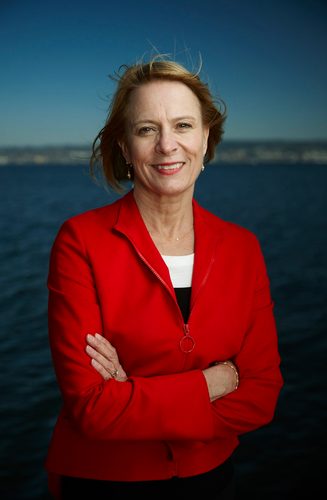 It took years for Elise Holschuh ’77 to really understand how profoundly her Carleton experience shaped her life. “Being at Carleton is such a rich experience,” she says. “You can’t find such a fabulous educational environment just anywhere. I wish everyone could have the opportunity to learn at a place like Carleton.”
It took years for Elise Holschuh ’77 to really understand how profoundly her Carleton experience shaped her life. “Being at Carleton is such a rich experience,” she says. “You can’t find such a fabulous educational environment just anywhere. I wish everyone could have the opportunity to learn at a place like Carleton.”
Through her service as a Carleton trustee since 2008, Holschuh has learned much more about the foundations and impacts of the Carleton experience than she knew as a young graduate. As chair of the Board’s admissions and enrollment committee, she is convinced that the true essence of Carleton starts with the composition of its student body. “Carleton’s objective as an institution is to attract the best and brightest students, and they can be found everywhere, across the spectrum of socioeconomic, racial, and gender diversity,” she says. “There’s no one dimension that has a disproportionate share of capability. To walk away from some of the best students for Carleton simply because we don’t have enough resources to provide them access to the school would be a tragedy.”
Holschuh firmly believes that financial aid is one of the most critical ingredients for Carleton’s institutional health. “Being a trustee has shown me why college costs so much,” she says. “For those who are sitting on the outside looking in, it’s easy to say that if an institution can’t keep its costs within the range of affordability, it must be doing something wrong. But I’ve seen for myself that Carleton is an extraordinarily well-run place—it’s collaborative, thoughtful, and intentional about how it spends its money. As long as we continue to be an exceptional residential liberal arts school—which we will hopefully always be—the answer lies not in cutting costs but rather in securing additional resources to provide access to deserving students.”
The solution to this challenge is clear to Holschuh: Alumni who were transformed by their Carleton education (and the gifts that helped make it possible) have a responsibility to pay it forward to the next generation. “It doesn’t have to be big money—it’s the intent that matters,” she says. “It’s really about gratitude. If somebody hadn’t paid for us to experience Carleton, our lives might be very different. Now we have the chance to give back.”
In today’s challenging financial environment, Carleton depends more than ever on gifts from alumni and friends to make its values a reality. “We need you,” Holschuh says. “You help us keep Carleton Carleton.”
